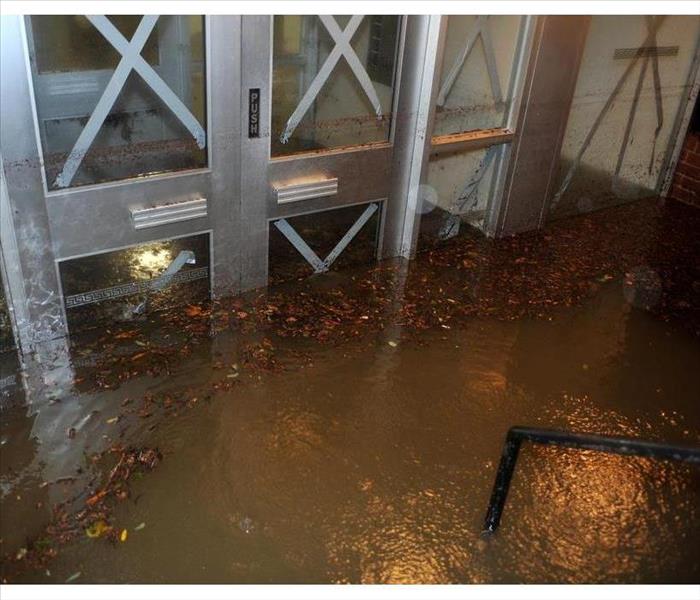Why Is Flood Water a Type of Black Water?
11/23/2021 (Permalink)
Flood water is considered Category Three black water because it may contain harmful contaminants. Flooding results when surface water overflows or heavy rain falls in East Cleveland, TN. Although this water may not initially contain solid waste, chemicals and other contaminants are likely to leach into standing water. Find out what the water resulting from flood or storm damage might contain and the risks it could pose.
Which Contaminants Are Found in Flood Water?
Water can pick up a variety of contaminants as it collects and stands outside or in a structure. These may include:
- Chemicals
- Heavy metals
- Pathogens
- Solid waste
Any of these contaminants can cause problems for humans or animals that are exposed to, or attempt to ingest, this water. In addition to potentially dangerous substances, contaminated water may also contain microbes that can cause illness.
What Are Some Possible Flooding Risks?
In addition to posing a threat to building materials and contents, water resulting from flooding can also pose a threat to individuals. A few possible risks include:
- Exposure to toxigenic substances
- Irritation of skin or other bodily systems
- Contagious infections
If water is allowed to stand for 24 hours or longer, the risk of mold growth will rapidly escalate. Schedule a complete cleanup sooner rather than later.
Are There Any Other Sources of Black Water?
Sewer backups are another common source of Category Three water, and these incidents may coincide with a storm. If heavy rains or flooding cause a municipal sewage system or septic tank to back up, it will also be necessary to drain, disinfect and dry the affected area.
Flood water can cause structural damage and expose occupants to contaminants. Mitigation experts will wear personal protective equipment and use professional cleanup methods to quickly remove water and limit the extent of secondary damage. Rely on a commercial storm damage restoration company in East Cleveland, TN.






 24/7 Emergency Service
24/7 Emergency Service
